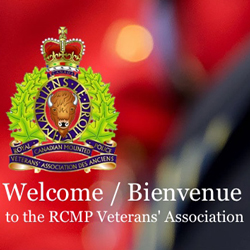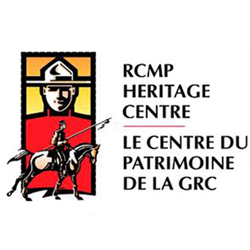A/Commr. George Worsley
George Stanley Worsley was persistent in his efforts to join the Force as an Inspector.
Despite the fact that his first 13 years were relatively uneventful, George distinguished himself in later years as: the Commanding Officer of Depot; Officer in Charge of “B” Squadron RNWMP which participated in the Canadian Expeditionary Force to Siberia; and over saw the absorption of the Saskatchewan Provincial Police in 1928.
This is a tribute to this early member.
Early Years
George Stanley Worsley was born on June 20, 1866 in St. Hyacinthe Quebec. His father was Colonel Pennyman White Worsley of the 60th Canadian Militia Regiment.
As the typical son of a Canadian military officer, he attended and graduated from the Royal Military College in Kingston Ontario. In June 1885, he enlisted in the British Imperial Army and received a Commission as a Lieutenant in the Royal Artillery. After receiving artillery training, he was posted to: India, Malta and Gibraltar. By 1895, George had been promoted to the rank of Captain. Instead of continuing his military career, he resigned from the British Army in 1896 and moved back to Canada.
In October 1897 and while residing in Halifax Nova Scotia, George wrote to Sir Wilfred Laurier (Prime Minister of Canada) expressing an interest in obtaining a Commissioned rank in the North West Mounted Police. Unfortunately for George, his request didn’t receive the approval or support that he had hoped.
From 1897 to 1900, George Worsley made his way to the Yukon to familiarize himself with the Canadian frontier life and claims to have conducted trading amongst the native people.
Being persistent, he submitted a letter to Lt. Colonel Fred White (Comptroller for the NWMP) on October 3, 1897 outlining that he had previously applied for a Commission and had communicated with the Prime Minister. He also pointed out to Fred White that he had served with his father. Despite the name dropping effort, Fred White outlined that 18 officers had been seconded to the Boar War and their positions were being held until they returned. To support his application, George arranged for various political cabinet ministers to write to Fred White outlining their recommendations for George Worsley.
In early 1900, George Worsley was able to meet Commissioner Bowen Perry in Edmonton. Apparently, the Commissioner was impressed with George. On December 4, 1900, Sir Wilfred Laurier directed Fred White to advance George Worsley’s name as the next Commissioned Officer in the NWMP.
Joins The Force
On April 1, 1901, George Worsley was sworn into the Force and granted a Commission as an Inspector with an annual salary of $1,000. From April to August 1901, he received his orientation to the Force. Then from 1901 to 1913, George was transferred back and forth between Calgary and Edmonton.
In 1912, George’s father wrote to Sir Robert Borden (Prime Minister) in an effort to get his son promoted to the rank of Superintendent. Fred White outlined that there were several more senior Inspectors than George Worsley. It was only a few years prior to this that Supt. Sanders raised concerns to the Commissioner about the suitability of George Worsley.
Finally on October 1, 1914, George was promoted to the rank of Superintendent and became the Commanding Officer of Depot. Shortly after arriving at Depot, it was suggested that the Force put on mounted horsemanship demonstrations at various farm fairs in Moose Jaw, Regina and in Brandon. These demonstrations became extremely popular with the people on the prairies and these displays continued up until 1918.
Siberian Expedition
In 1918, the Canadian government agreed to support the British and French interests to send Allied forces to Siberia to support the Royalist fighting the Bolsheviks and to safeguard the Allied stockpiles of munitions send to Russia. The fear was that the munitions would be taken over by the German and Austrian prisoners-of-war who were returning from Siberian camps to Germany. In so doing, there was a perceived risk that the released prisoners would seize the munitions and prolong the fighting on the Western Front.
All the Allied countries contributed military units to Siberia such as: Japan, Britain, France, Italy, Serbia, and the United States.
During the summer of 1918, the government of Canada authorized the creation of a Canadian Siberian Expeditionary Force. This Force was to consist of 4,950 men with primary combat units being:
- 85th Battery Canadian Field Artillery
- 259th Battalion
- 260th Battalion
- “B” Squadron RNWMP (190 men)
In the summer of 1918, George Worsley was appointed by the Commissioner to command and organize this Squadron.
Prior to departing Regina, George Worsley was advised that their deployment would be to depart Regina on train and be boarded on the Canadian National ship S.S. Monteagle. Once onboard, they would be transported to the port city of Vladivostok Siberia. After a short encampment, the Squadron would be transported to the Russian city of Omsk which was the headquarters for the Russian Royalist.
On November 17, 1918, the Squadron departed Vancouver and arrived in Vladivostok on December 7, 1918. They remained in Vladivostok for orders to proceed to Omsk.
In January 1919, George Worsley was advised that the Canadian government changed its direction for the Canadian Expeditionary Force. Since World War I ended on November 11, 1918, Canadian politicians and citizens questioned the rationale in being involved in a foreign countries civil war. Consequently, the Expeditionary Force was to remain in Vladivostok for order to return home. On June 7, 1919, the bulk of “B” Squadron returned to Canada.
Returns to Canada
George Worsley returned to Depot and assumed his previous position as the Commanding Officer of Depot.
In recognition for his dedicated service and supporting the Japanese efforts in Siberia, the Japanese government awarded George Worsley with the Order of the Rising Sun – 4th Class. On December 23, 1922, the Saskatchewan Lt. Governor presented the medal to George.
In May 1923, he was transferred to Ottawa and promoted to the rank of Assistant Commissioner.
On November 26, 1926, the Governor General was seeking a new ‘aid-de-camp’ and George Worsley was appointed to this position with the recommendations of Commissioner Starnes.
With the province of Saskatchewan agreeing to have the RCMP take over the provincial policing from the Saskatchewan Provincial Police, George Worsley was transferred back to Depot coordinate this switch over and amalgamate their provincial police into the RCMP.
Advances In Life
On June 15, 1931, George retired from the Force and settled in the Victoria area with a pension of $2,910 annually. While in retirement, he married Evelyn Marriott Worsley.
Unfortunately passed away on November 20, 1945 at the Jubilee Hospital in Victoria, B.C. He was laid to rest at the Royal Oak Burial Park.


 January 19, 2012
January 19, 2012 











